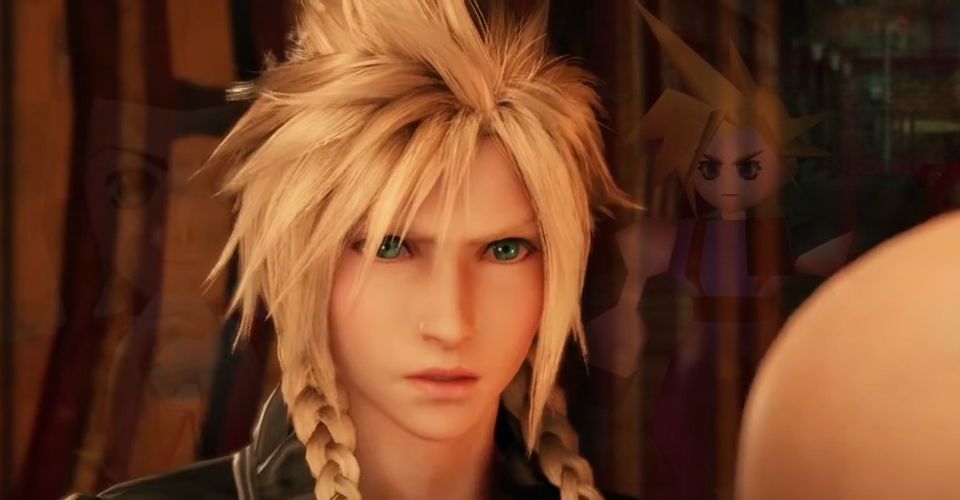The Differences Between a Video Game Remake, Remaster, & Reboot

2020 is seemingly full of video game remakes. Even as video games continue to gain recognition as a valid and innovative art form, it seems that every month there is a new remaster, remake, or port slated for release. While the simple ubiquity of these types of games can be enough to give one reboot fatigue, the terms used to describe them are not entirely interchangeable.
Though some games like Final Fantasy VII Remake and The Last of Us Remastered include the description right in the title, not all games are so forthcoming. Though the projects often share common goals of capitalizing on nostalgia and breathing new life into long-running franchises, the terms remake, remaster, and reboot all refer to very different approaches to game development and design.
Here’s a breakdown of the difference between a video game remake, remaster, and reboot.
What A Video Game Remake Means

A video game remake is the most straightforward of the given terms, as it is exactly what it sounds like: developers make the game again from scratch, building the project’s assets from the ground up. The goal of a remake is often to bring a beloved or critically-acclaimed game to newer platforms and, consequently, new players, capitalizing on a game’s existing popularity while making the most of newer technology. Recent examples of this type of game include Shadow of the Colossus, which features stunning new assets and an updated control system, and Link’s Awakening, which was transformed from an orthogonal 2D video game to a nearly unrecognizable 3D game with a tilt-shift POV and all-new artwork.
What A Video Game Remaster Is

If a remake is building a new house, a remaster is a fresh coat of paint. Remasters such as Dark Souls Remastered seek to update relatively recent releases from the last few years to keep up with ever-changing technology, generally opting to re-use existing assets in order to focus on delivering smoother graphics and higher quality sound.
While remakes tend to tackle older games limited to obsolesced technology, as with aforementioned examples Shadow of the Colossus (2005, PS2) and Link’s Awakening (1993, Game Boy), remasters generally update titles from the previous generation of games, making many of them intergenerational ports. (A regular port, on the other hand, is simply a re-release of a contemporary game onto another platform, such as Hades coming to Nintendo Switch and Horizon Zero Dawn becoming available on PC.)
What A Reboot Is & How It’s Different

Not just a beloved nineties TV series, a “reboot” refers to a total creative overhaul of a given property. Unlike remakes and remasters, which are largely concerned with updated technology, video game reboots tackle a project from every angle, including fundamental creative elements like design, narrative, and character.
A notable example of a video game reboot is 2013’s Tomb Raider, in which developers recreated Lara Croft’s origin story and subsequently re-launched the long-running Tomb Raider series with successful sequels Rise of the Tomb Raider and Shadow of the Tomb Raider.
Final Fantasy 7 Remake Is Also A Reboot, But Not Completely

And then, there’s FF7. Although Final Fantasy 7 Remake has the term in the title, the game itself has left many fans questioning whether “remake” is an accurate description. FF7 Remake only includes a fraction of the original FF7’s plot, opting instead to include a new story element, the Whispers, that change the course of the game’s narrative and set it up for a planned series of FF7 sequels. Though the game features the rebuilt assets and updated gameplay that typically define a remake, the stark contrast between the new narrative and that of the original has polarized the fandom and caused many to contest the Final Fantasy 7’s remake status.
However, Final Fantasy 7 Remake is not quite a reboot, either. Though elements of the reboot approach apply to FF7, the term “reboot” is generally reserved for entire franchises, rather than specific games. The game is certainly not a remaster, either, having been rebuilt from the ground up for the PS4. So where exactly does Final Fantasy 7 Remake fall?
The Breath of the Wildcard

Launched in 2017 for the Wii U and Nintendo Switch, Legend of Zelda: Breath of the Wild received critical acclaim for turning the long-running Zelda franchise into a seemingly endless sandbox game. Praised for its open world design, gorgeous visuals, and updated gameplay, the game represented a turning point in the franchise, a gold standard against which all future Zelda games would be measured. However, though it introduces many new creative elements to Zelda, such as voice acting, Breath of the Wild is not a reboot of the franchise. It follows the same basic formula of previous Zelda games, and does not retcon any previous entries in the series, fitting snugly into the Zelda chronology as laid out in the Hyrule Historia.
Instead, Breath of the Wild represents a reimagining of the Legend of Zelda franchise. It retains the core elements found in every Zelda game, but isn’t beholden to replicating the narrative of an existing entry in the franchise. Breath of the Wild literally reimagines the world of Hyrule previous Zelda games have constructed, empowering players to explore a new story and style of gameplay within a familiar setting. Similarly, FF7’s approach of delivering the “remake” over the course of several games allows the developers to flesh out the story and characters in a way previously unattainable on the original PlayStation, and gives players a sense of control of the new narrative.
With both the FF7 Remake sequels and Breath of the Wild 2 still in development, the legs of this approach remain to be seen. But if the success of the initial games are any indication, fans are in for an invigorating new take on these beloved franchises. Where remakes and remasters are concerned with technological upkeep, and reboots entail a creative overhaul of the entire property, reimagined projects strike a happy medium between the two, taking advantage of technological advancements and creative accomplishments to create a new, yet familiar, experience. Though it may not quite live up to the term in its title, Final Fantasy VII Remake’s reimagining of the beloved original game offers players a fresh new gaming experience – one with more than enough content to keep players engaged and excited in a sea of reboots, remasters, and remakes.
About The Author
















